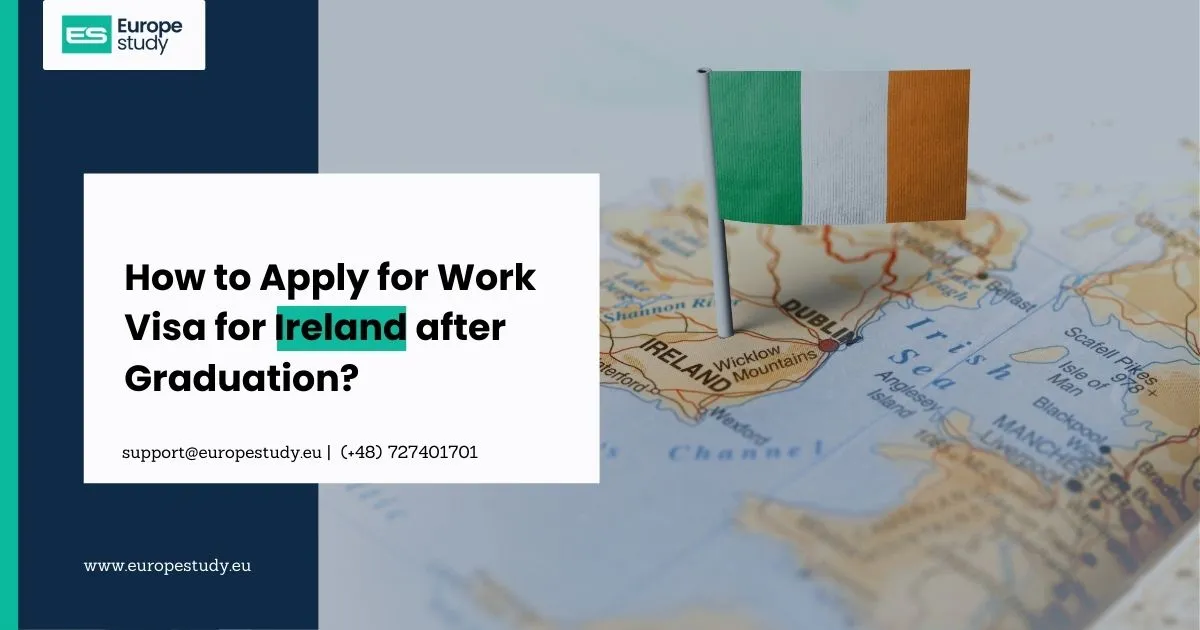
How to Apply for Work Visa for Ireland after Graduation?
Ireland offers an excellent opportunity for non-EU/EEA students to remain in the country after graduation through the Third Level Graduate Programme. This initiative allows graduates to seek employment and gain practical experience, contributing to Ireland’s skilled workforce. Here’s a detailed guide on the programme’s eligibility criteria, duration, application process, and post-study options.
Eligibility Criteria
To qualify for the post-graduation work permit in Ireland, applicants must meet the following conditions:
• Educational Qualification: Graduates must hold a recognized degree at Level 8 or higher from an Irish higher education institution.
• Visa Status: Applicants must possess a valid Stamp 2 student immigration permission and an up-to-date immigration registration card.
• Application Timeline: The application must be submitted within six months of receiving the final exam results.
• Financial Stability: Applicants need to demonstrate sufficient funds to support themselves during their stay.
• Medical Insurance: Proof of private medical insurance coverage is required.
• Previous Participation:
o Graduates who have previously benefited from the Third Level Graduate Programme at Level 8 or above can re-enter the programme upon achieving a higher-level qualification (e.g., Level 9 or above).
o They may be granted an additional 12-month stay, subject to an overall maximum limit of eight years.
o A graduate cannot access the programme more than twice.
Duration of Stay Based on Qualification Level
The length of the post-study work visa depends on the level of qualification obtained:
• Level 8 (Honours Bachelor’s Degree): Eligible for a 12-month extension.
• Level 9 (Master’s Degree) and Level 10 (Doctoral Degree): Eligible for a 24-month extension.
This extension provides graduates with sufficient time to seek employment and gain valuable work experience in their field.
Step-by-Step Application Process
Applying for the Ireland post-study work visa involves the following steps:
1. Prepare Required Documents:
o Gather all necessary documents, including proof of graduation, financial statements, and medical insurance coverage.
2. Complete the Online Application:
o Fill out the visa application form accurately through the AVATS online portal.
3. Pay the Application Fee:
o The current fee is €300, payable during the online application process.
4. Submit Supporting Documents:
o After completing the online form, submit the printed application along with the required documents to the designated visa office or embassy.
5. Attend Biometrics Appointment (if required):
o Some applicants may need to provide biometric information as part of the application process.
6. Await Decision:
o Processing times vary, but most applicants can expect a decision within eight weeks of submission.
Required Documentation
Applicants must provide the following documents:
• Valid Passport: Must be valid for at least 12 months beyond the intended date of arrival in Ireland.
• Proof of Graduation: Official transcripts or a letter from the educational institution confirming the award.
• Financial Evidence: Recent bank statements showing sufficient funds to cover living expenses.
• Medical Insurance: Proof of valid private medical insurance.
• Application Letter: A signed letter explaining the purpose of stay, intended duration, and commitment to adhering to visa conditions.
• Previous Visa Refusals: If applicable, include details of any previous visa refusals along with original refusal letters.
Post-Study Work Visa Options
Upon expiration of the Third Level Graduate Programme permission, graduates may be eligible to apply for other employment permits, such as:
• Critical Skills Employment Permit:
o Designed for highly skilled occupations with a minimum annual salary requirement.
o As of January 1, 2025, the minimum salary threshold is €44,000.
• General Employment Permit:
o Applicable to a broader range of occupations with specific eligibility criteria.
The Third Level Graduate Programme offers non-EU/EEA students an excellent pathway to remain in Ireland after graduation, gain work experience, and potentially transition to long-term employment. By understanding the eligibility requirements, application process, and post-study options, graduates can maximize their chances of building a successful career in Ireland.





